Березень 28, 2023
Суспільне на форумі про медіаграмотність: «Люди з критичним мисленням менш вразливі для пропаганди»
24-25 березня у місті Трускавець відбувся щорічний форум «Медіаграмотність 5.0: від викликів до рішень», присвячений сучасним викликам у сфері медіаграмотності та пошуку можливостей для їх подолання. Захід організували DW Akademie й Український інститут медіа та комунікації за підтримки BMZ та Європейського Союзу, які запросили до діалогу українських і міжнародних експертів.
Читайте також: Суспільне Мовлення та Чеське радіо продовжили співпрацю
В обговоренні взяли участь представники Суспільного Мовлення: Олександр Дмитренко, керівник Академії Суспільного Мовлення — навчального центру з підвищення професійних навичок журналістів, Владислава Місна, менеджерка Дитячої академії Суспільного Мовлення, а також ведучий інформаційного вечора «Суспільне. Спротив» на місцевих каналах Суспільного й тренер воркшопів про критичне мислення для підлітків від Дитячої академії Суспільного Мовлення Олександр Єльцов.
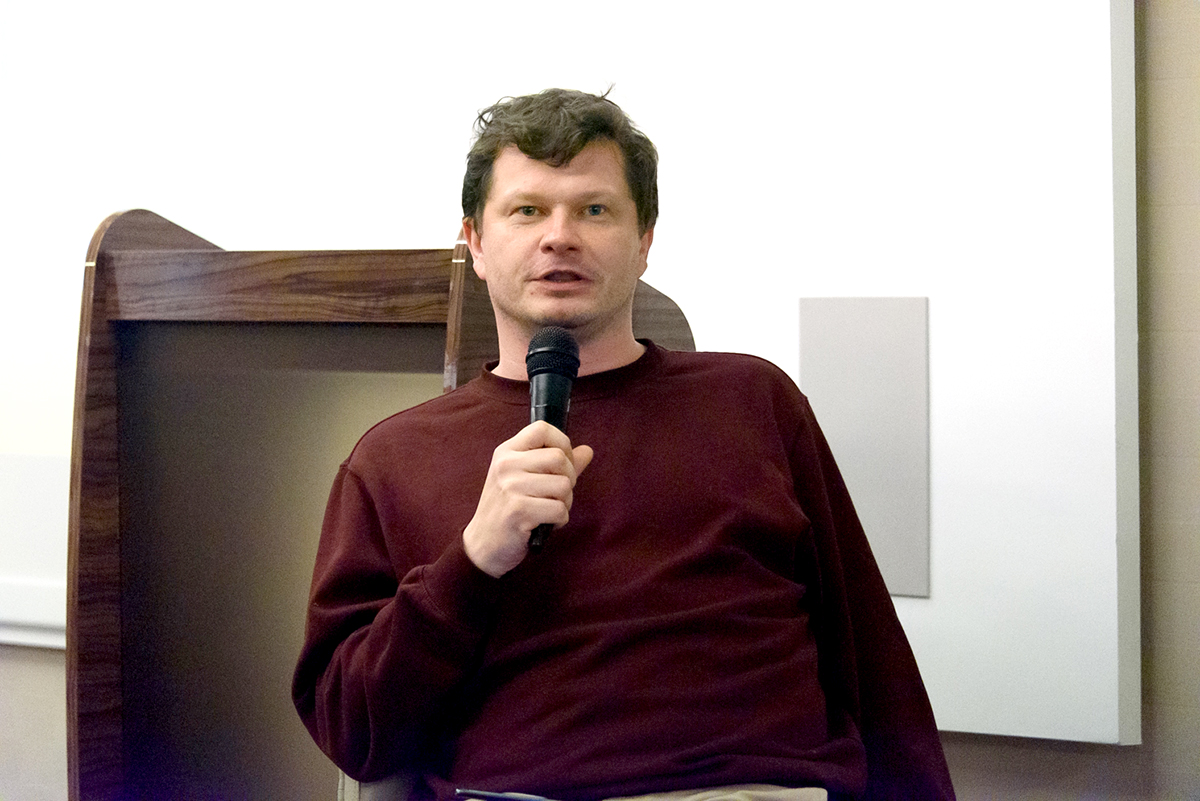
За словами Олександра Дмитренка, Академія Суспільного Мовлення і створена на її базі Дитяча академія Суспільного Мовлення з початку свого заснування реалізують проєкти з медіаграмотності для різних цільових аудиторій, бо «що вищий рівень медіаграмотності — то вищий рівень життя».
Він додав, що з початком повномасштабної війни навчальні центри Суспільного посилено працюють над тренінгами з безпеки та роботи у ворожому середовищі для журналістів, тренують навички надання першої допомоги із залученням українських і міжнародних фахівців, розвивають навчально-просвітницькі проєкти з інфогігієни та юридичної обізнаності.
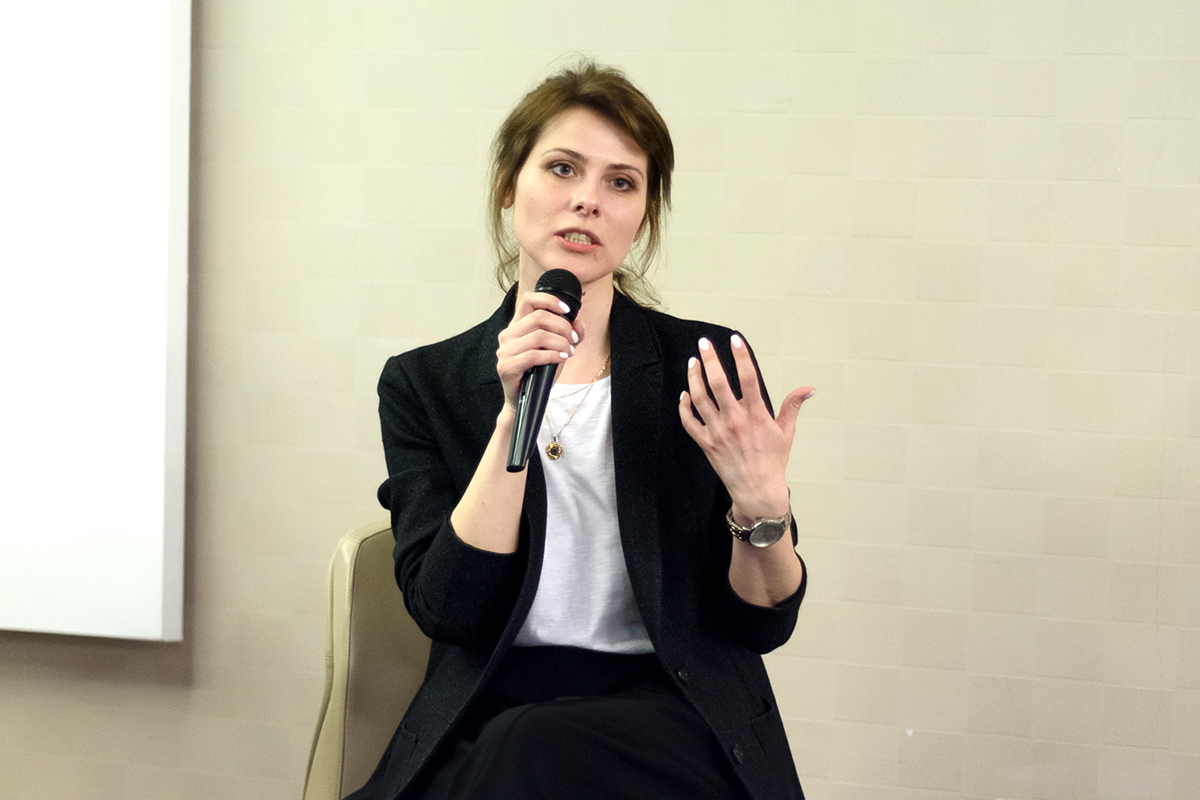
Владислава Місна наголосила, що Дитяча академія Суспільного Мовлення з перших днів заснування «вшивала» медіаграмотність в усі курси, бо це невіддільна частина освіти. Наразі в Україні існує багато курсів з медіаграмотності, які дають якісні матеріали, зокрема про те, як під час війни виявляти фейки та не вестися на дезінформацію й пропаганду: «Важливо зробити так, щоб аудиторія дійшла до цих курсів і дійшла мотивована, з повним розумінням того, чому треба це знати. Медіаграмотність має стати невіддільною частиною повсякденного життя, не тільки в закладах освіти. Ми — нація свідомих та вільних людей, і саме з цієї сильної позиції ми маємо діяти».
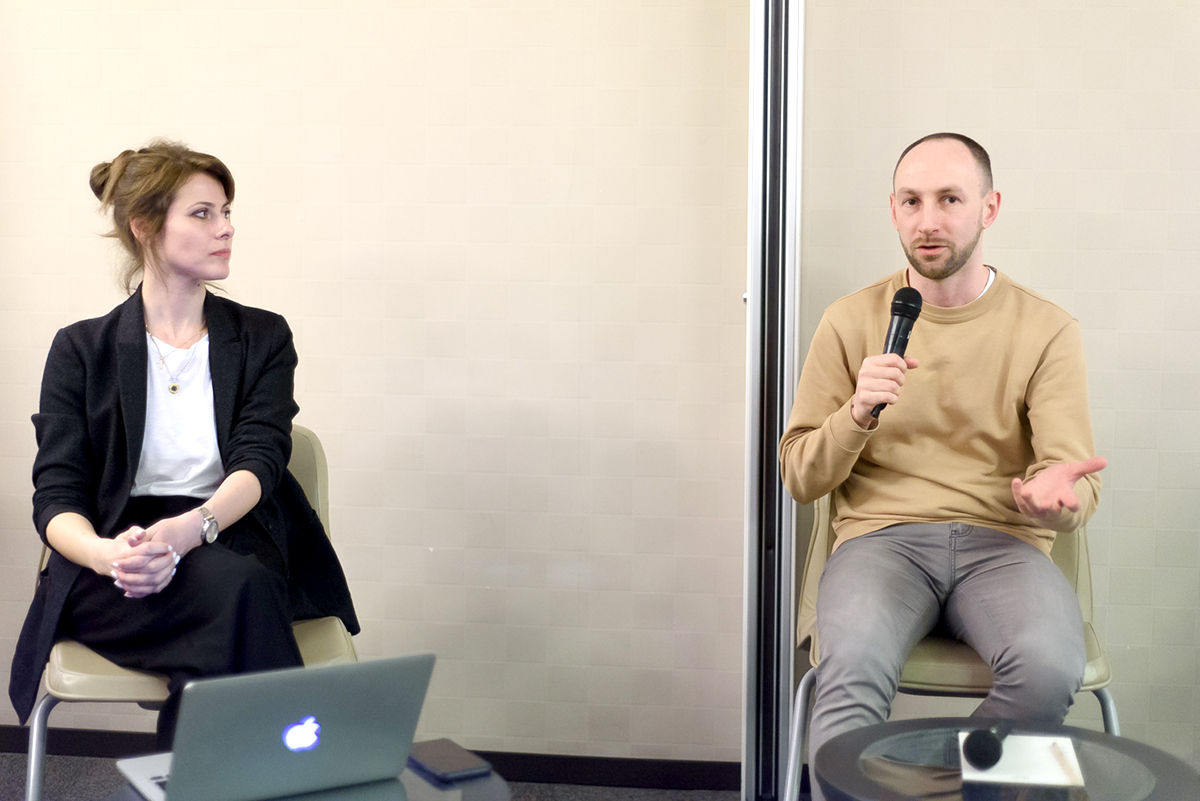
Олександр Єльцов, своєю чергою, поділився досвідом роботи з підлітками у межах воркшопів про критичне мислення від Дитячої академії Суспільного Мовлення. Він зауважив, що Академія й далі проводитиме цікаві тренінги, які вчитимуть дітей і дорослих методів перевірки інформації.
«Медіаграмотних людей складніше ошукати, вони менш вразливі до пропаганди й маніпуляції. Тому усім нам потрібно працювати над своїм критичним мисленням. Об’єднавши зусилля, ми зможемо захистити Україну й на інформаційному фронті», — підсумував Олександр Єльцов.
Читайте також: Микола Чернотицький розповів про три сценарії підготовки Суспільного до великої війни
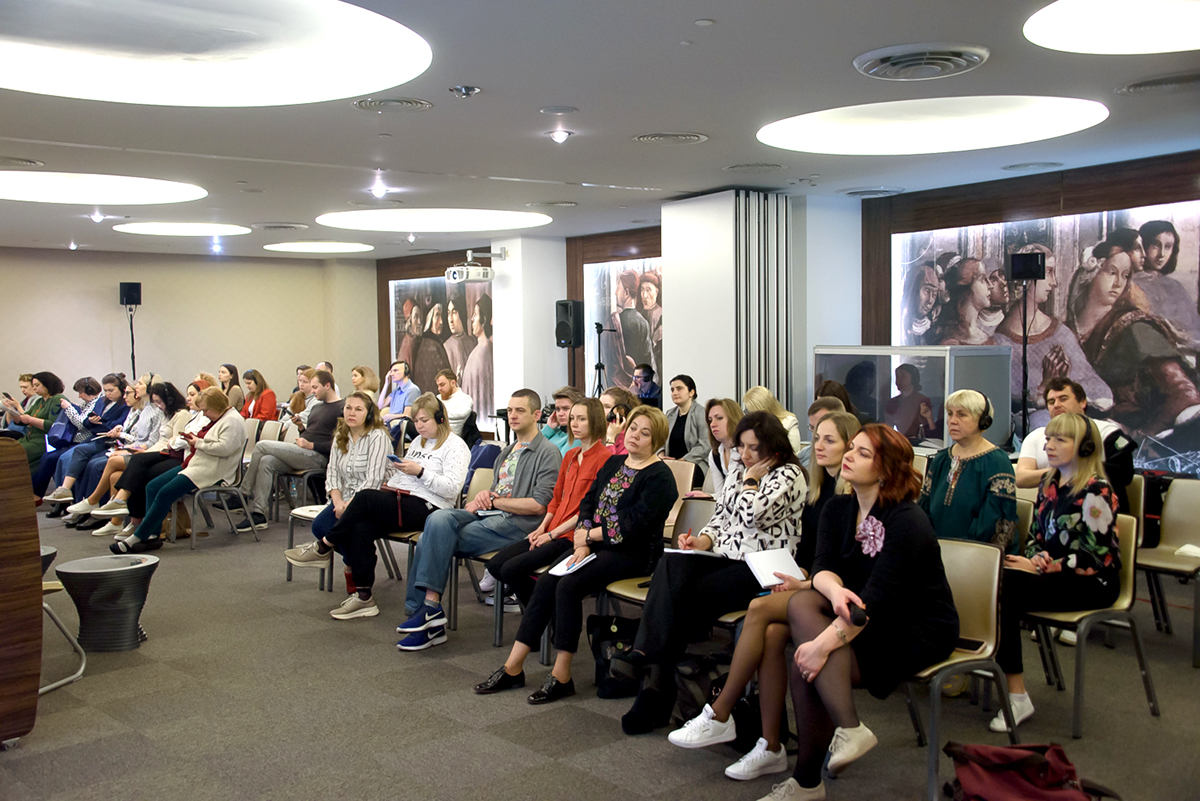
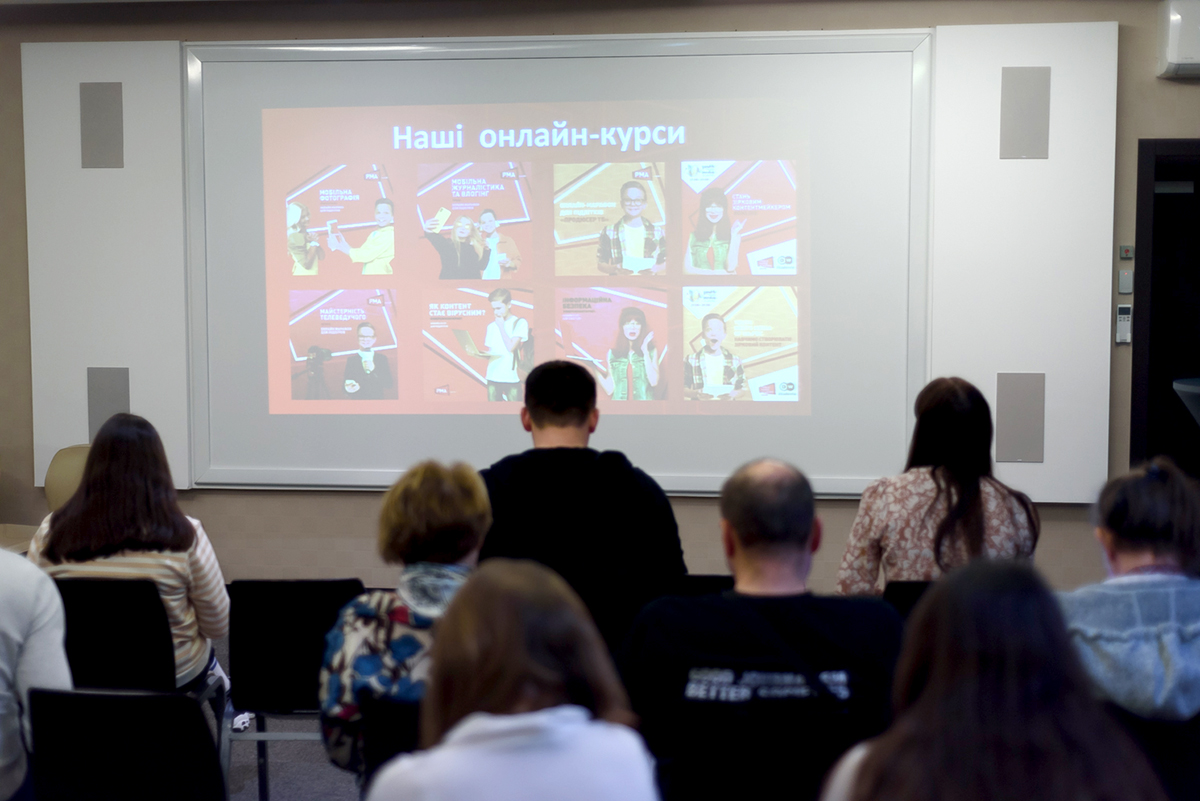
Нагадаємо, Академія Суспільного Мовлення — навчальний центр, створений під егідою Суспільного мовника України. Реалізує навчальні програми за участі тренерів європейських медіашкіл і міжнародних організацій, таких як Deutsche Welle Akademie, BBC Media Action, CFI, IREX, UN Women, Council of Europe Office in Ukraine, а також українських медіатренерів. Проводить семінари й тренінги для журналістів та медіаменеджерів, організовує навчальні тури до європейських суспільних мовників і суспільних мовників США, стратегічні та фасилітаційні сесії, консультації європейських медіаекспертів тощо.
Суспільне Мовлення — найбільше незалежне медіа в Україні, до якого входять загальнонаціональні телеканали Перший, Суспільне Культура, супутниковий телеканал Суспільне Новини й радіостанції Українське Радіо, Радіо Промінь, Радіо Культура, а також 24 місцеві мовники. Новини про Україну та регіони читайте на сайті suspilne.media та діджитал-платформах.
Suspilne at the forum on media literacy: "People with critical thinking are less vulnerable to propaganda"
On March 24-25, in Truskavets, Ukraine, was held the annual forum "Media Literacy 5.0: From Challenges to Solutions", to discuss current challenges in the field of media literacy and to find opportunities to overcome them. The event was organised by DW Akademie and the Ukrainian Institute of Media and Communication with the support of BMZ and the European Union, which invited Ukrainian and international experts to the dialogue.
Read also: Suspilne Ukraine and Czech Radio continue cooperation
Representatives of Suspilne Ukraine took part in the discussion: Oleksandr Dmytrenko, head of the Public Media Academy, a training centre for professional development of journalists, Vladyslava Misna, manager of the PMA Juniors, and the host of the information evening "Suspilne. Resistance" on local Suspilne Ukraine channels Oleksandr Yeltsov, a trainer of workshops on critical thinking for teenagers from the PMA Juniors.
According to Oleksandr Dmytrenko, the Public Media Academy and the PMA Juniors created on its basis have been implementing media literacy projects for various target audiences since its foundation, because "the higher the level of media literacy, the higher the standard of living".
He added that since the outbreak of full-scale war, the training centres of the Suspilne Ukraine have been working hard on safety and hostile environment training for journalists, training first aid skills with the involvement of Ukrainian and international experts, and developing educational projects on info hygiene and legal awareness.
Vladyslava Misna emphasised that the PMA Juniors has been "sewing" media literacy into all courses since its inception, because it is an integral part of education. Currently, there are many media literacy courses in Ukraine that provide quality materials, including how to identify fakes during the war and not to be led by disinformation and propaganda: "It's important to make sure that the audience comes to these courses motivated, with a full understanding of why they need to know this. Media literacy should become an integral part of everyday life, not only in educational institutions. We are a nation of conscious and free people, and it is from this strong position that we must act."
In his turn, Oleksandr Yeltsov shared his experience of working with teenagers in the framework of workshops on critical thinking organised by the PMA Juniors. He noted that the Academy will continue to hold interesting training sessions that will teach children and adults how to verify information.
"Media literate people are harder to deceive, they are less vulnerable to propaganda and manipulation. That is why we all need to work on our critical thinking. By joining forces, we will be able to protect Ukraine on the information front as well," summarised Oleksandr Yeltsov.
Read also: Mykola Chernotytskyi spoke about three scenarios for preparing Suspilne Ukraine for a full scale war
As a reminder, the Public Media Academy is a training centre established under the auspices of Suspilne Ukraine. It implements training programs with the participation of trainers from European media schools and international organisations such as Deutsche Welle Akademie, BBC Media Action, CFI, IREX, UN Women, Council of Europe Office in Ukraine, as well as Ukrainian media trainers. It conducts seminars and trainings for journalists and media managers, organises study tours to European public broadcasters and U.S. public broadcasters, strategic and facilitation sessions, consultations with European media experts, etc.
As a reminder, Suspilne Ukraine is the largest independent media outlet in Ukraine, which includes the national TV channels Pershyi and Suspilne Kultura, and radio stations Ukrainian Radio, Radio Promin, Radio Kultura, as well as 24 local TV and radio companies and the satellite TV channel Suspilne Novyny. News about Ukraine is available on suspilne.media and digital platforms.


